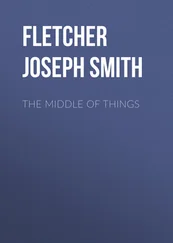
FOR THOSE WITH UNDERSTANDING, this heat is gloomy. This ardent sun is a deathly caress on the skin. This light is life itself, burning up. For those with understanding, this long summer is black: black behind the light, black behind the sun, black beneath the heat. And it’s in this summer that she comes, walking along the road with a listless, ever so tired step. The imposition of living obliges her to walk, to keep going, stopping in the few patches of shade along the road; and all the heat, all the light, is a gloomy shade. And sadness is her gaze while she walks the road, her eyes staring at the ground. Sadness will be her gaze when she appears at the gate to the farmstead. Carrying a heavy and painful death, she’ll walk without stopping over the land, in the afternoon, inside the light, straight to the rich people’s house. She won’t see me, even as she won’t see the silence of the mallows that she passes. And time, wearing her down, will continue. When she leaves, a little before José pens up the sheep or a little after José enters the house, she’ll look at me with a sorrowful gaze, and since she knows I’ll go visit her mother tomorrow, she’ll say see you tomorrow.
But today she won’t need to choose a moment among possible moments, because today José didn’t go to the fields. I took some hay to the sheep and changed their water. The window of José’s bedroom has been closed all day. In the air there’s a faraway peacefulness, the size of a whole man. Tattered clouds slowly glide by. The light makes all things glow, including all the animals’ gazes and all the trees’ leaves and all the stones. I’m old and I know. This sun shows us more clearly the ruins. What we see is what has remained. We are granted our heart’s desire only for it to be definitively taken away, since our dream of it perishes. This sun shows us our own desperateness. For those with understanding, this sun is the hand that caresses us and crushes us. This sun is the lullaby sung by our mother to put us to sleep, and it wakes us up in the unbearable darkness of our no longer having a mother and finding ourselves in this sweltering and hopeless solitude. For those with understanding, this summer is black. For those with understanding, this heat is gloomy.
AFTER SALOMÃO VANISHED DOWN THE PATH leading him home, after the first sounds of night arrived, José returned with the flock of sheep. The animals’ short legs could be heard stumbling on the stones, their quick steps sounding like a sack of small potatoes poured onto a table. The night was a languid melancholy, a veil of black marble surrounding the fields and weighing inside José. He unraveled the wires on the gate and waited for the sheep to enter. His motions were absent, unrecorded in memory. José’s eyes were large. The old, old sheepdog withdrew. The stars and the unattainable peace of the cicadas could be heard in the distance. José went around the sheep pen to behind the feed troughs, where he leaned his staff, hung up his shoulder bag on a nail, and took off his black sheepskin and his shirt. And he remembered all of Salomão’s words. Is it true, José? His ingenuous voice and words. It’s not true, is it? His cousin’s face and José’s sincere regret, those words and José’s remorse spreading across the whole plain and the world as he knew it. I know it can’t be true. Naked from the waist up, his eyes were larger than night, and all the stars were mirrored in his gaze. He grabbed the rope that hung on a gatepost and swung it in an arc across his left shoulder. First the rope traced dark streaks on his back where tiny red beads appeared; then blood began to flow in vertical lines, alternating with the rope’s steady beating; finally his back was a single curtain of blood, which spattered each time the rope struck. José kept his eyes wide open. His powerful arm did not relent. The rope slashed the air with a groan and cracked against his back. José switched hands and continued until his hands trembled. He set down the rope. Buttoning all its buttons, he put his shirt back on over the blood. He donned his black sheepskin. He went into the house. He walked past his mother sitting by the fire and they didn’t talk. Lying on the bed in his bedroom, in the darkness, José looked at the ceiling and at all the sun that he knew.
THE APPRENTICE LEFT, SALOMÃO left, and Master Rafael kept running the plane across the board that was to become a doorframe. He wielded the plane with his only hand, making the board perfectly smooth. Even when the days grew longer, Master Rafael always worked until the last ray of sunlight, and on that afternoon he was so lost in his own thoughts that he didn’t hear Salomão say see you tomorrow, nor did he hear the apprentice ask can I leave now, my mother’s waiting for me to milk the goats? nor did he hear himself say okay, you can go. And when, in a pause between two memories, he woke up and realized he was alone, he smiled at his discovery and went over to the window. It was a wide window, its panes covered with sawdust, and it was open. He steadied himself on the sill, and with his only eye and his only ear he drank up the sunset’s luminosity and its symphony of sounds. The lumberyard had no fence, and the landscape stretched across the properties of Doctor Mateus, across a gentle wheat field that ended in a golden summit where the sun disappeared among the stalks of grain. A balmy breeze rose up out of the heat, and it was like a fresh breath expanding in waves over the wheat, as when a stone is tossed into a pool of water. The vast unbounded skies converged on the place where the smoldering sun was setting, as if they also wished to sink out of sight, letting the night prevail. In a dense mixture of opposing movements, like a sheet of bodies shaken in a whirlwind, the sparrows went around in a burst of cheeps, making the most of the day’s last meanders. Dusk. And Master Rafael, within himself, was larger. He thought of the blind prostitute. In that moment the whole surface of the sky was but one of her gestures; the sun’s nimbus glowing on the earth’s horizon was but a strand of her hair; the thousand-voiced melody of the sparrows was but the beginning of one of her sighs; the infinite expanse of the plain was but the soft skin on the tip of one of her fingers. He thought, and his thoughts seemed truer to him than thoughts, for he knew that he would go visit her that evening. Slowly night touched the earth, and only then did Master Rafael go on his way. Supporting himself on his crutch, he closed the windows and closed the doors. His father had made the crutch one week before he died. It was light, strong, and did not hurt his armpit. It had replaced another, smaller one, which had replaced another, smaller one, which had replaced another, smaller one. But now Master Rafael was a man and would grow no more, and when sometimes he sat down and looked at it, that crutch seemed to him more durable than eternal things, such was the care that had gone into its making and such the appreciation he’d felt for it over the years. He closed the gate, slamming it with a thunderous clang. He walked home, accompanied only by the repeated sound of the crutch stabbing the ground and by the voices of people on their doorsteps greeting him. He passed by Salomão’s house, which was next to the house of the man shut up in a room writing, and as always happened, upon hearing the sound of the crutch, still coated with shavings and sawdust, Salomão came outside and said see you tomorrow. Master Rafael raised his gaze a little and kept going. When he reached his door he opened it, closed it, and did not light the kerosene lamp. He knew where everything was. He grabbed a piece of hard bread and, as if it were cork, used a knife to cut it up into slices over a bowl. Since he had half a coffeepot left over from breakfast, he poured the cold coffee over the bread, sat down at the table, and swallowed large spoonfuls of bread and coffee. Then he lifted the bowl to his mouth and sipped the crumb-filled liquid, which for him was the best part. He paused for a moment, feeling satisfied, then burped and stood up. He filled the washbasin. It was a washbasin made of painted iron, with an enamel jug underneath, a small mirror on top, the basin itself in the middle, a place for soap, and a short iron bar on which to hang a towel. He took off all his clothes and draped them over the chair in his bedroom. He returned to the kitchen, and in the darkness, in front of the washbasin, he washed his arm to the elbow and washed his face and neck, working up a good lather. Clean and fresh, back in his bedroom, he put on the clothes that, summer or winter, he always wore on nights when he visited the blind prostitute: a pair of brown trousers, with the right leg folded and secured with safety pins, a white shirt and a gray jacket, with the right sleeves folded and secured with safety pins. He ran his fingers through his hair, undoing the shape made by his cap, and left.
Читать дальше













